- Home
- George R. R. Martin
Wild Cards III: Jokers Wild Page 13
Wild Cards III: Jokers Wild Read online
Page 13
“Ah, Senator, I see someone with whom I must speak. Adieu for the moment. Madam, will you walk?” He rose, offered his arm to Roulette, and they moved quickly to the other side of the stand.
A tide of humanity lapped at the edge of the stand, and stretched away in a great undulating wave, filling the square before Jetboy’s Tomb. Behind them loomed the tomb itself, huge flanged wings reaching to heaven. Through the tall narrow windows she could see the full-size replica of the JB-1 suspended from the ceiling. And out front the twenty-foot-tall Jetboy stared aloofly over the heads of the crowd.
“Curious little drama we witnessed,” remarked Tachyon.
“Yes.”
He leaned back, looking up at her. “And you don’t like the senator. Why?”
“Because I suspect he has an interest in the companies backing that multi-million-dollar boondoggle he was discussing with such relish.”
“It sounded like it would help the people in Zaire.”
“Hardly. It’s been designed so no power can be siphoned off to provide services to the people living along its 1,100-mile line. It’s basically a billion-dollar project to give money to that thug Mobutu, and to line the pockets of various large international corporations, and to make vast amounts of money in the form of interest for a number of large Western banks. It does fuck-all for the people of Zaire who will continue to live at a subsistence level despite one of the greatest repositories of mineral wealth on the continent.”
“Roulette, you’re wonderful.”
She spun to face him. “If you’re about to tell me how beautiful I am when I’m in a passion I’ll slug you off this stand!”
He held up his hands. “No, no, I do admire the passion, and you are very beautiful, but you care, you’re so interested . . . you remind me of another woman.” The rather tangled sentence trailed away, and he seemed to be looking at some picture that had nothing to do with the holiday crowds that stretched away before them.
Roulette, staring idly out, suddenly gasped as the shadow of a pterodactyl rippled over the people. She glanced up, and sure enough, a pterodactyl was winging its way toward them. Tachyon, alerted by her indrawn breath, sighed, and made shooing motions with his hands. The pre-historic creature came on, the alien grabbed her about the waist, and pulled her back beneath the awning just as several small pterodactyl turds pattered onto the stand.
“Kid,” Tachyon shouted. “Next time I catch you I’m going to beat you.”
Koch was beckoning, so they returned to their chairs. Ten minutes later a cute-faced kid with several inexpertly covered pimples on his chin, and dressed in jeans and a T-shirt, wiggled through the front row of the crowd, and waved impudently up at the Takisian.
“Hey, Tachy, here I am.”
“Well, at least you’re dressed.”
“I thought ahead. Left my clothes in the plane.” A hand shot out indicating the tomb. “Thought you were going to beat me.”
“I may yet.”
“Bet you can’t.”
Koch was tapping the mike with a forefinger, sending booming, thrumming pops echoing across the square. Roulette, glancing between boy and alien, saw the human’s eyes widen in alarm. Tachyon, with a guilty glance to Koch, darted to the edge of the stand. The Kid turned, bent, and obligingly presented his posterior to the doctor, who gave him a quick but gentle kick in the seat.
“Kid, stay out of trouble.”
“No fair. Disgusting Alien Powers Used to Abuse Little Kid,” he said in a tone indicative of a headline from the National Informer.
“Juvenile Delinquent Uses Ace Powers to Aggravate City.”
“Aggravate? Can’t I at least terrorize?”
“Maybe when you’re older.” Koch was glaring at the pair. “Now shoo. I have to be dignified now.”
“Good luck.” And with a flip of the hand he vanished back into the crowd.
“Who is he?”
“Kid Dinosaur. He’s very bright, but unfortunately at that awkward age between boy and man which means he’s something of a monster. He drives the aces mad for he’s always underfoot. It must be very trying to his parents to be raising an ace, but children are such a delight—”
“Hey, you’re on,” Roulette said, interrupting the babble.
“Oh, by the Ideal, thank you.” Leaning in close he said with a wink, “And then we can leave.”
She thought he presented a rather comic figure. Tiny little man, head just topping the podium, red satin suit, and long red hair like a punk Lord Fauntleroy. She noticed that he had no notes, and wondered if an extemporaneous speech was quite wise. Then he lifted his head, and began, and comedy was replaced by dignity, and a wealth of caring.
“I always find it a little difficult to think what to say on this day. Are we celebrating, and if so what? Or are we honoring and remembering? And if so who do we honor, and what do we remember as a guard against future mistakes? You will hear a great deal today about Jetboy, and the Turtle, and Cyclone, and a hundred other aces,” He waved at the great green shell where it hovered over the crowd. “And yes, even about me. But I don’t think that’s fair, and I’m going to talk about other people. About Shiner, who gave a home to an abandoned child, and Jubel, who can always spare a dime for some other joker down on his luck, and Des, who’s done more to get parks built and schools improved in Jokertown than any other person.
“I speak about the jokers because I think they can offer a lesson and an example to other people. Their sufferings, mental, physical, and emotional, match anything experienced in human history, and they’ve tried a number of methods to cope with their isolation ranging from quiet fortitude as they were abused by police, and other public officials, to violence culminating in the events of 1976, and now a new approach. A sense of self-reliance, and sharing that has allowed them to build, within the confines of our so-called Jokertown, a true community.
“I point out the various accomplishments of these remarkable people because there is a new mood in this country which I find fearsome. There is once again an attempt to delineate what is ‘American,’ to despise and discriminate against those who exist on the periphery of this fairy-tale ‘majority.’ And it is a fairy tale. Each person is an utterly unique individual. There is no ‘consensus of opinion,’ no ‘right way’ to do things. There are only people who, no matter how hideous and twisted on the outside, are internally driven by the same hopes and dreams and aspirations that drive all of us.
“I suppose what I really want to say on this Wild Card Day, 1986 is ‘Be kind.’ For adversity comes from many sources, not just from alien virus brought across light-years, and there may come a time when all of us, ‘nats,’ ‘aces,’ and jokers alike, will need that kind word, that offer of help, that sense of community that the jokers so wonderfully represent. Thank you.”
The applause was thunderous, but Tachyon looked unhappy as he walked back to her.
“Very noble, but how do you think it will play?” Roulette asked as he scooped his hat off the chair.
Her arm was once more pulled through his, and he urged her toward the back stairs. “Some people will compare me to Mother Theresa, and others will say I am a self-serving son of a bitch.”
“And you, what do you say?”
“That I’m neither. Just a man trying to live with honor, and to embrace whatever happiness is given me.” They were standing by the limo, and Tachyon suddenly wrapped his arms about her waist, and buried his face in her bosom. “And I’m glad you are here to be embraced.”
Furiously she cast him off, and backed away until brought up short by the back of the car. “Don’t look to me for comfort. I have none for anybody. I told you that already. And what do you need it for, anyway? You’re the saint of Jokertown. The big shot with a private limo, as much a star as any of the aces.”
“Yes, yes, and yes! But I am also consumed with guilt, devoured by a failure that gathers every year on September fifteenth to haunt me! God, how I hate this day.” His fists slammed onto the to
p of the car, and Riggs drifted away to stare in fascination at the cuff of his uniform coat. Tachyon’s shoulders shook for several seconds, then he dashed a hand across his eyes, and turned back to face her. “All right, you have no comfort for me. I accept that. You said you were on a pilgrimage of despair. So am I. So let us at least journey together, and if we can’t comfort we can at least share.”
“Fine.” She climbed into the car, and rested her head against the window.
And maybe I can do something. I can free you from your guilt, and by destroying you perhaps find my own peace.
Jennifer pulled herself through an endless expanse of concrete and steel, looking for a place where she could solidify and take a much-needed breather. She felt light-headed, even for a specter, and it was getting hard to concentrate. She had an overwhelming urge to simply drift, to float disembodied like a cloud and forget all her worries, all the danger that was dogging her footsteps like a snarling Doberman.
But she couldn’t give in to that urge. If she did she’d lose all being and become an attenuated will-o’-the-wisp, floating mindlessly until the random forces of Brownian movement scattered her to all corners of the Earth.
It was hard to work up the urgency to make herself move faster, but Jennifer succeeded, pulling herself through the last of the bleacher supports. She found herself in a carpeted corridor lit by overhead fluorescent lamps, and immediately solidified and leaned shakily against the corridor wall. She still felt distant and disoriented and her head swam with vertigo. It had been close, but she’d solidified in time. She realized that she had to be careful about using her powers for a time, until she was certain that her system hadn’t been overtaxed.
Now, Jennifer thought, if she could only orient herself, she’d get the hell out. The only problem was, she’d never been in the bowels of Ebbets Field before, and she had no idea where she was.
There was a double door at one end of the corridor. In the opposite direction the corridor branched. She had to go one way or the other, and Jennifer chose the doors. Unfortunately they were blank, with no windows set in them.
Well, she thought, if anyone questioned her she’d simply say she’d gotten lost. Although why she was wearing only a bikini might be hard to explain.
She took a deep breath, let it out noisily, and pushed the doors open. She took a step into a large, well-lit, richly carpeted room, and froze. The murmur of a dozen conversations gradually died down as all eyes in the room turned toward her.
I don’t believe it, she told herself. She closed her eyes, but when she opened them a moment later everyone was still there, staring. I don’t believe I just walked into the Dodgers’ locker room.
Twenty men were in the room. Some were playing cards in small groups, some were talking. Hernandez, the first baseman, was sitting by his locker doing his customary pre-game crossword puzzle. Pete Reiser himself, sixtyish, gray-haired but still lean and arrow straight, was standing in front of Seaver’s locker, talking with the pitcher and the Dodgers’ Cuban pitching coach, Fidel Castro. Some of the players still had their practice jerseys on, some had started to change to their game uniforms. Some hadn’t gotten very far in the change.
Jennifer, feeling the pressure of all those eyes on her, felt she should say something, but when she opened her mouth no words would come.
“Uh . . .” She tried again. “Uh . . . good luck today.”
A small metallic snuff box slipped out of the hand of Thurman Munson, veteran Dodger catcher and team captain, and the sudden sound it made as it clattered against the stool in front of his locker broke the spell that seemed to hold everyone.
A dozen players spoke at once, from Reiser’s strident, “How the hell did you get in here? to half a dozen variations on, “Jeez, nice body” and “Great outfit.”
Jennifer, mortified, forgot her earlier worries and ghosted through the nearest wall into a small room with a drug cabinet, a couple of empty padded tables, a bunch of incomprehensible machines, and a dripping Dwight Gooden climbing naked out of the whirlpool.
“Hey!” he said as she went by.
“Great game yesterday,” Jennifer said, smiling weakly. He slid back into the whirlpool, ducking down so the water came up to his chin, and stared in disbelief as she passed though the wall next to the whirlpool.
Great body, too, Jennifer told herself, sneaking a final peek before she vanished.
As a capo working for Rosemary’s father, Don Carlo Gambione, Don Frederico “the Butcher” Macellaio had once ordered Bagabond’s death. Bagabond had not forgotten. Standing beside an oak in a nearly deserted Central Park, she started toward Central Park West and was glad most of New York appeared to be down at Jetboy’s Tomb. She felt conspicuous in the brown tweed business suit and high heels she’d scavenged from one of her subterranean stashes. But this way none of the normal denizens of the park could possibly recognize her. A few of the street people had seen too much over the years; it was best to be . . . discreet. She slid her aching left foot out of the shoe and stood, weight on her right leg, as she watched Don Frederico exit his exclusive apartment building. The sheltering canopy said The Luxor. Dressed in an expensively tailored black suit, the Butcher crossed the sidewalk to a white Cadillac stretch limousine.
He was flanked by two guards in dark glasses and unbuttoned suit jackets. Getting into the car, Don Frederico snatched the door out of his chauffeur’s hand and slammed it. The driver paused for a fraction of a second before turning sharply around and getting into the car. One of the guards got into the front seat beside the driver, while the other appeared to scan the sidewalk and Central Park West in both directions.
The limousine pulled out and crossed against horn-blowing traffic to enter the park at the West Drive. With disbelief, Rosemary had once told her about the don’s habits. It was always the same route. The don was either very stupid or very self-assured. A show of power. Knowing the limo would drive across the Transverse, then exit onto 65th and cruise past Temple Emanu-El to the Butcher’s favorite restaurant, Aronica’s, Bagabond walked at an oblique angle through the park. She mentally summoned a flock of pigeons and nearly a hundred squirrels. They waited at the stone bridge near the middle of the drive.
As Bagabond walked across the park to meet them, a large gray cat, one of the black’s and calico’s offspring, dropped out of a lightning-warped maple tree to block her path.
The gray was one of the few kittens at least as intelligent as his parents. He had refused to join Bagabond’s group of animals when he understood how Bagabond used the creatures to her advantage, sometimes without caring about the effect on the animals’ lives. The gray had chosen to live apart in a section of Central Park Bagabond used only in-frequently. He resented her presence.
Now Bagabond told him she would not be there long. The cat imaged dead bodies scattered across the landscape. Bagabond stiffened and told him to leave her. He turned and trotted a few yards away, before he turned and spat at her. She reached out with her mind to attack, but stopped before she burned out his brain. The gray disappeared into a stand of maples. Clenching her fists, Bagabond stood watching the cat.
Then she was abruptly aware of the progress of the don’s car. A peregrine, escaped from a would-be urban falconer, was Bagabond’s eye, following the Butcher’s car as it cruised through the park. There were no colors, but the perception of movement caught her consciousness as the falcon’s eyes roamed across the park. She brought him gliding back around to follow the Butcher’s car. According to Rosemary’s file, Don Frederico Macellaio used this daily drive to order the deaths of his opponents from his armored, surveillance-proof car. Bagabond leaned back against a broad tree trunk, kicked off her shoes, and concentrated on directing her animals.
As she began the mental routine of organizing and directing the birds and animals she had summoned, Bagabond realized that the gray was hiding among the maples and observing her. She warned him off, but he responded with an image of himself marking the trees to show his terr
itory. She ignored him as the don’s car drew closer to the spot she had chosen.
She found she was nervous at the car’s approach. The gray had broken her concentration. He had a gift for making her think in ways she normally avoided. The Butcher was Rosemary’s enemy as well as her own. She had learned from the animals themselves to kill or be killed. The Butcher was a threat that had to be removed. Besides, it would please Rosemary. It was obvious to Bagabond that Rosemary was too worried about too many things. Her concern with the Gambiones had become consuming. With a new don, she could relax and spend more time with Bagabond. Bagabond wanted that enough to disturb the rhythms and lives of her creatures. To kill them.
She closed the gray out of her mind and sent pain down the connection joining them. The gray yowled as she felt the energy hit him.
The part of her mind that was organizing the birds had completed that task. The flocks of pigeons temporarily roosted in the trees around the bridge. For an instant, there was an unnatural stillness.
Breaking out of the trees, gleaming as the sun hit the finish, the limousine proceeded around the corner on its stately way. The mirrored windshield reflected the tree branches overhead.
A lone pigeon wheeled free of the flock and, at Bagabond’s command, sent itself soaring high into the sky. Then it hurled itself down at the limousine’s windshield as though intending to land on one of the phantom trees. Blood splattered the white paint of the hood. The driver braked and seemed to hesitate for an instant before continuing.
Bagabond watched the scene in fragments seen through the eyes of the hawk now behind the car and the pigeons above and before the limousine. Her own eyes were wide and staring, but the other visions overwhelmed her human sight. She damped the pain of the pigeon in the same way she removed from her consciousness the constant deaths she normally experienced.
Overhead, a hundred birds stopped cooing as she took them over completely. The avian wave swept down toward the car, covering it in a cloak of blood and feathers. The limousine’s brakes shrieked as the driver attempted a panic-stop before his blindness wrecked the car.

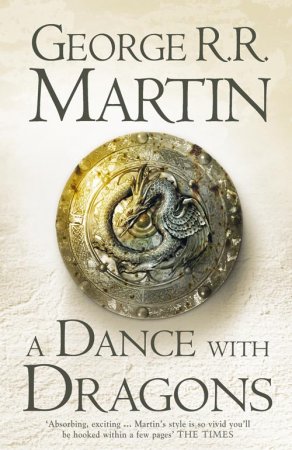 A Dance with Dragons
A Dance with Dragons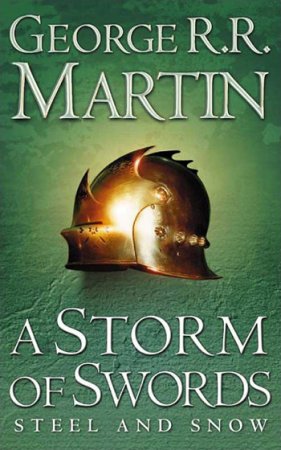 A Storm of Swords
A Storm of Swords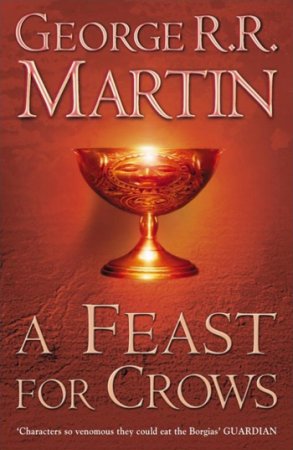 A Feast for Crows
A Feast for Crows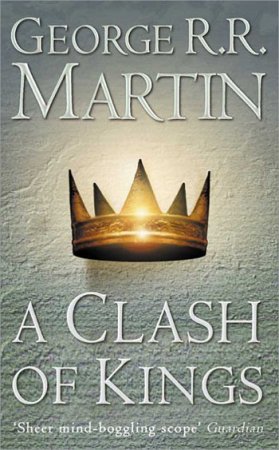 A Clash of Kings
A Clash of Kings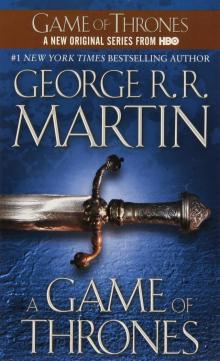 A Game of Thrones
A Game of Thrones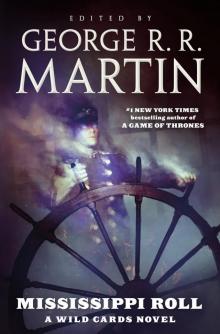 Mississippi Roll
Mississippi Roll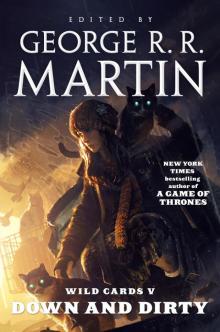 Wild Cards V: Down and Dirty
Wild Cards V: Down and Dirty Busted Flush
Busted Flush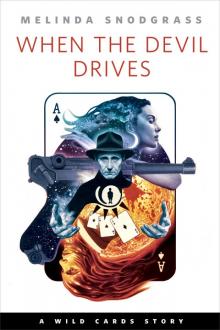 When the Devil Drives
When the Devil Drives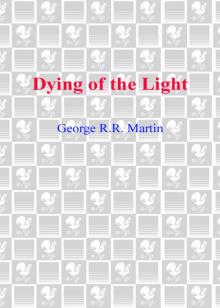 Dying of the Light
Dying of the Light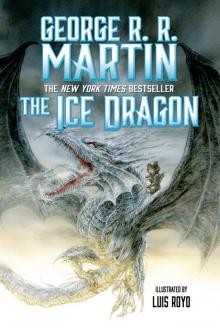 The Ice Dragon
The Ice Dragon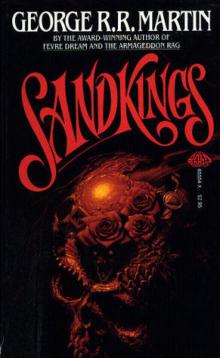 Sandkings
Sandkings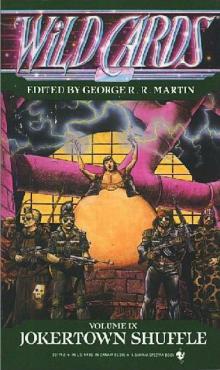 Jokertown Shuffle
Jokertown Shuffle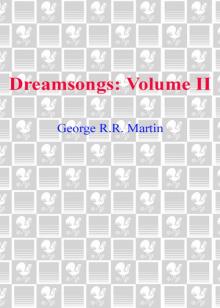 Dreamsongs. Volume II
Dreamsongs. Volume II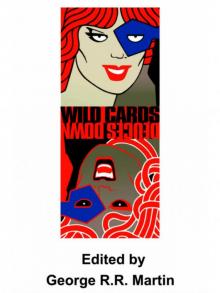 Deuces Down
Deuces Down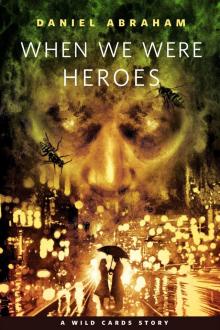 When We Were Heroes
When We Were Heroes Warriors
Warriors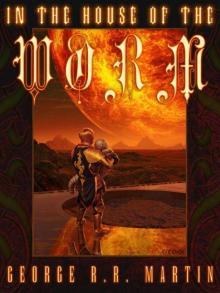 In the House of the Worm
In the House of the Worm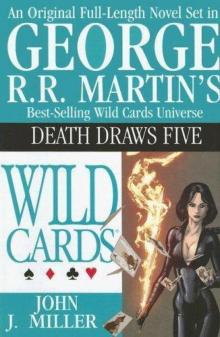 Death Draws Five
Death Draws Five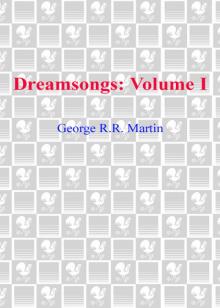 Dreamsongs. Volume I
Dreamsongs. Volume I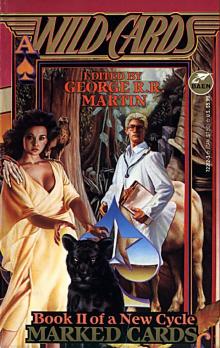 Marked Cards
Marked Cards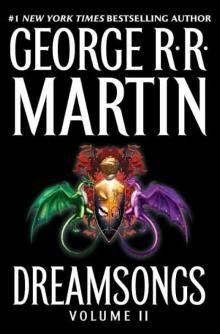 Dreamsongs
Dreamsongs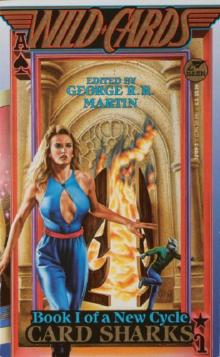 Card Sharks
Card Sharks Dangerous Women
Dangerous Women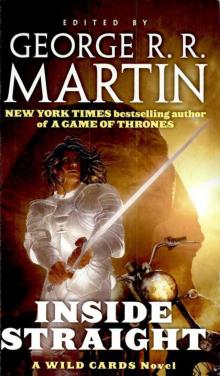 Inside Straight
Inside Straight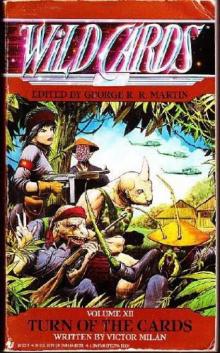 Turn of the Cards
Turn of the Cards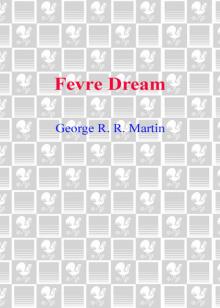 Fevre Dream
Fevre Dream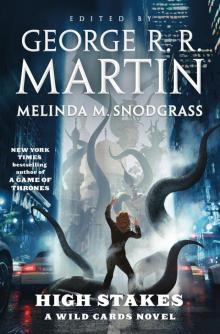 High Stakes: A Wild Cards Novel
High Stakes: A Wild Cards Novel Windhaven
Windhaven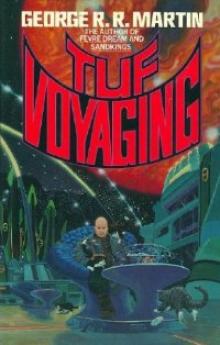 Tuf Voyaging
Tuf Voyaging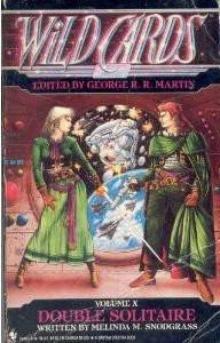 Double Solitaire
Double Solitaire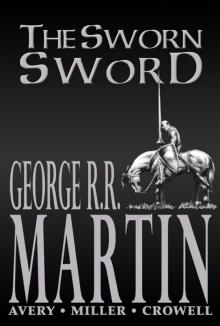 The Sworn Sword
The Sworn Sword Low Chicago
Low Chicago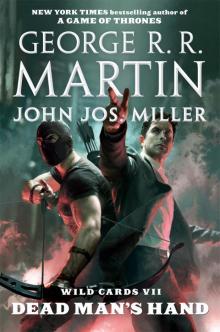 Dead Man's Hand
Dead Man's Hand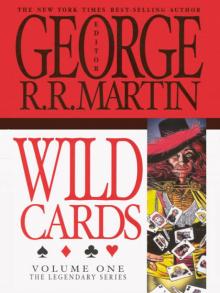 Wild Cards
Wild Cards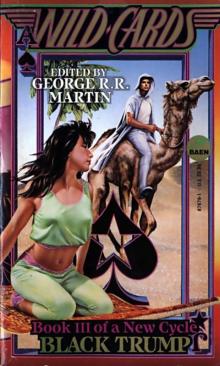 Black Trump
Black Trump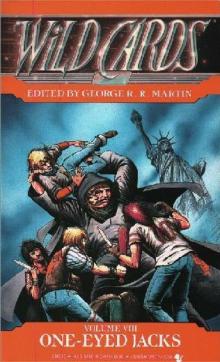 One Eyed Jacks
One Eyed Jacks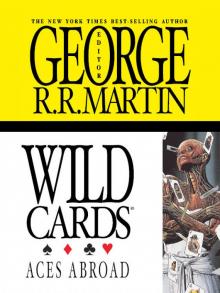 Wild Cards: Aces Abroad
Wild Cards: Aces Abroad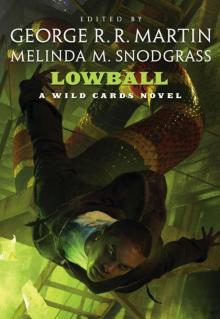 Lowball: A Wild Cards Novel
Lowball: A Wild Cards Novel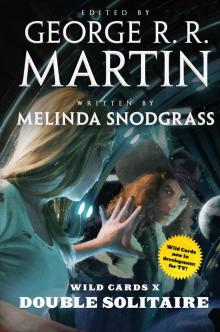 Double Solitaire (2019 Edition)
Double Solitaire (2019 Edition)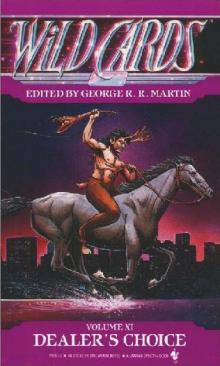 Dealer's Choice
Dealer's Choice Ace in the Hole
Ace in the Hole A Song for Lya: And Other Stories
A Song for Lya: And Other Stories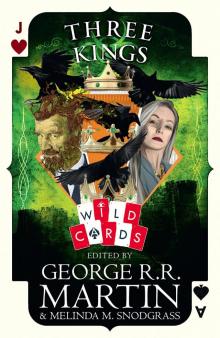 Three Kings
Three Kings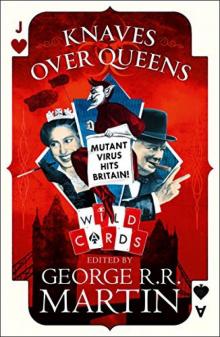 Knaves Over Queens
Knaves Over Queens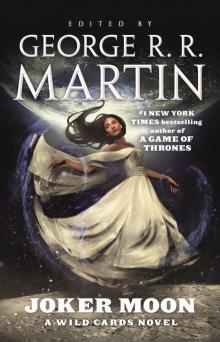 Joker Moon
Joker Moon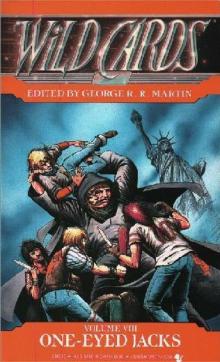 One Eyed Jacks wc-8
One Eyed Jacks wc-8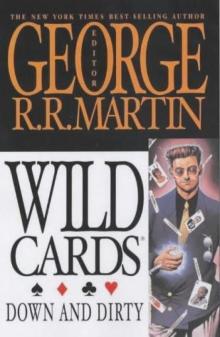 Down And Dirty wc-5
Down And Dirty wc-5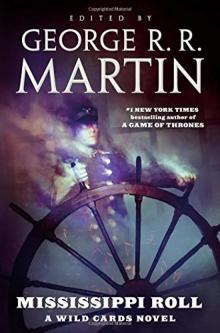 Mississippi Roll_A Wild Cards Novel
Mississippi Roll_A Wild Cards Novel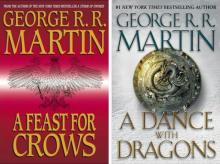 A Feast for Dragons
A Feast for Dragons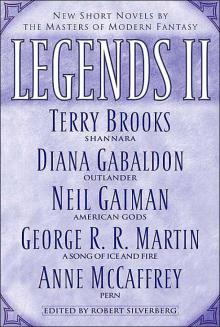 The Sworn Sword ttodae-2
The Sworn Sword ttodae-2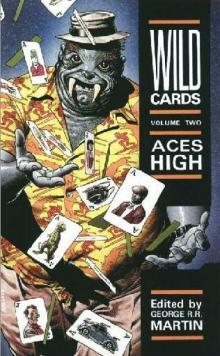 Aces High wc-2
Aces High wc-2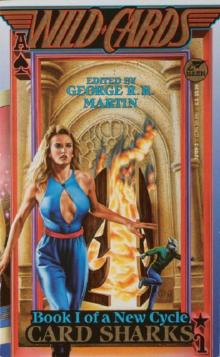 Wild Cards 13 : Card Sharks
Wild Cards 13 : Card Sharks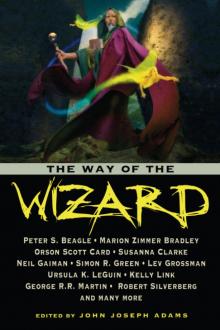 Way of the Wizard
Way of the Wizard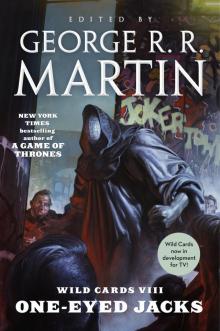 Wild Cards VIII: One-Eyed Jacks
Wild Cards VIII: One-Eyed Jacks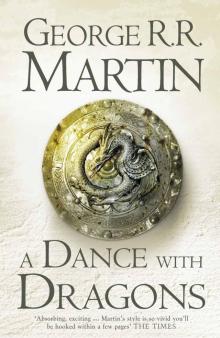 A Dance With Dragons: Book 5 of A Song of Ice and Fire (Song of Ice & Fire 5)
A Dance With Dragons: Book 5 of A Song of Ice and Fire (Song of Ice & Fire 5) The Princess and The Queen, Or, The Blacks and The Greens (a song of ice and fire)
The Princess and The Queen, Or, The Blacks and The Greens (a song of ice and fire)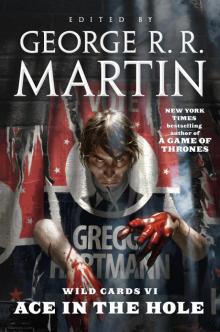 Wild Cards VI--Ace in the Hole
Wild Cards VI--Ace in the Hole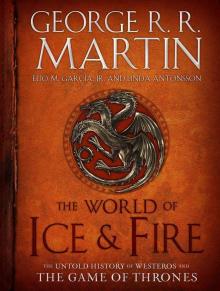 The World of Ice & Fire: The Untold History of Westeros and the Game of Thrones (A Song of Ice and Fire)
The World of Ice & Fire: The Untold History of Westeros and the Game of Thrones (A Song of Ice and Fire)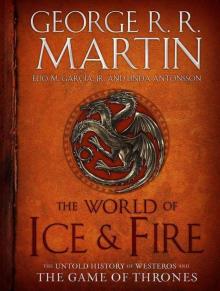 The World of Ice & Fire: The Untold History of Westeros and the Game of Thrones
The World of Ice & Fire: The Untold History of Westeros and the Game of Thrones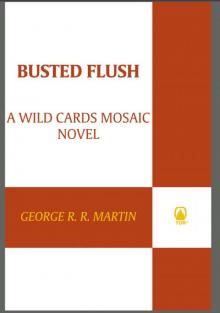 Busted Flush wc-19
Busted Flush wc-19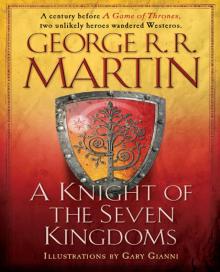 A Knight of the Seven Kingdoms
A Knight of the Seven Kingdoms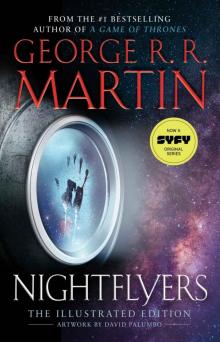 Nightflyers: The Illustrated Edition
Nightflyers: The Illustrated Edition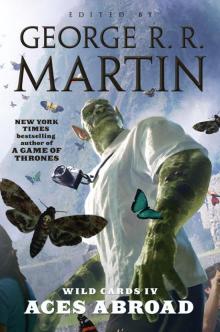 Wild Cards IV
Wild Cards IV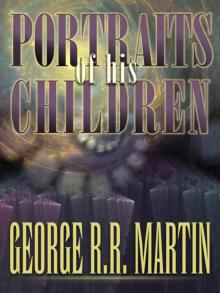 Portraits of His Children
Portraits of His Children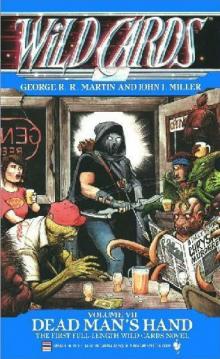 Dead Mans Hand wc-7
Dead Mans Hand wc-7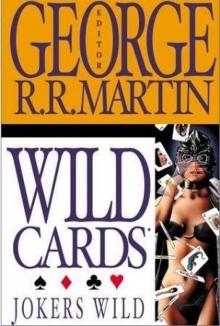 Jokers Wild wc-3
Jokers Wild wc-3 The Lonely Songs of Laren Dorr
The Lonely Songs of Laren Dorr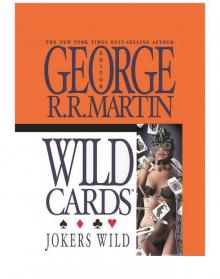 Wild Cards III: Jokers Wild
Wild Cards III: Jokers Wild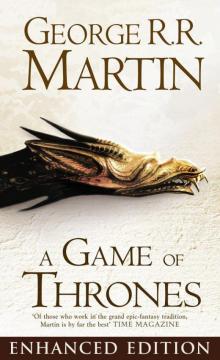 A Game of Thrones Enhanced Edition
A Game of Thrones Enhanced Edition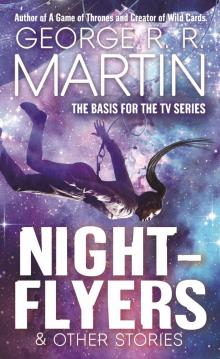 Nightflyers & Other Stories
Nightflyers & Other Stories Armageddon Rag
Armageddon Rag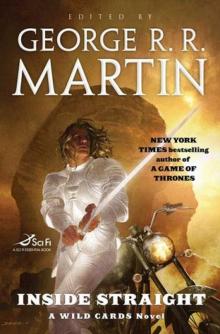 Wild Cards: Inside Straight
Wild Cards: Inside Straight A Song for Lya
A Song for Lya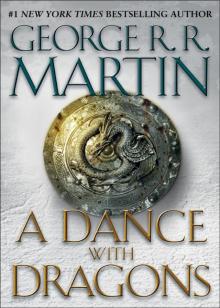 A Dance with Dragons: A Song of Ice and Fire: Book Five
A Dance with Dragons: A Song of Ice and Fire: Book Five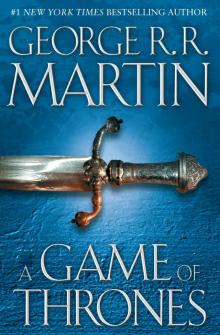 Song of Fire & Ice 01 - A Game of Thrones
Song of Fire & Ice 01 - A Game of Thrones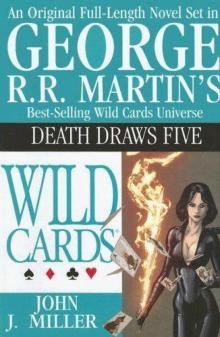 Death Draws Five wc-17
Death Draws Five wc-17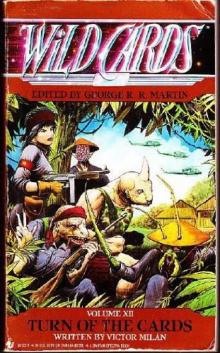 Turn of the Cards w-12
Turn of the Cards w-12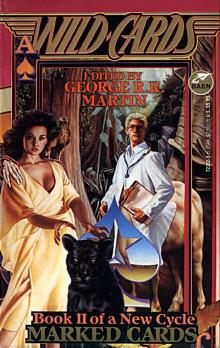 Wild Cards 14 - Marked Cards
Wild Cards 14 - Marked Cards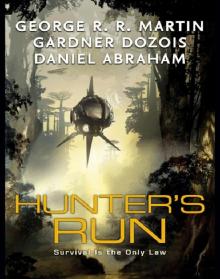 Hunter's Run
Hunter's Run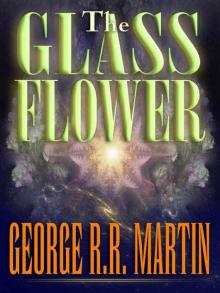 The Glass Flower
The Glass Flower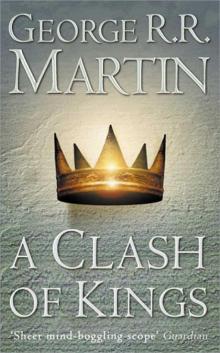 A Clash of Kings asoiaf-2
A Clash of Kings asoiaf-2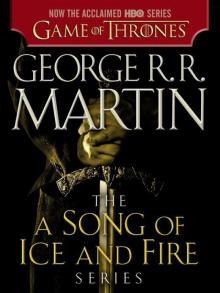 A Game of Thrones 5-Book Bundle: A Song of Ice and Fire Series: A Game of Thrones, A Clash of Kings, A Storm of Swords, A Feast for Crows, and A Dance with Dragons (Song of Ice & Fire)
A Game of Thrones 5-Book Bundle: A Song of Ice and Fire Series: A Game of Thrones, A Clash of Kings, A Storm of Swords, A Feast for Crows, and A Dance with Dragons (Song of Ice & Fire)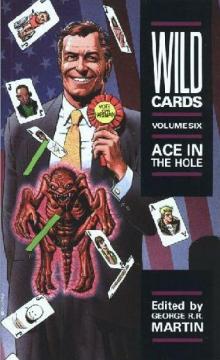 Ace In The Hole wc-6
Ace In The Hole wc-6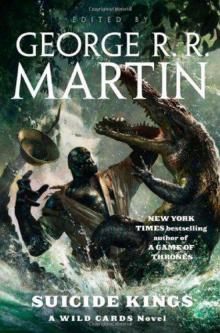 Suicide Kings wc-20
Suicide Kings wc-20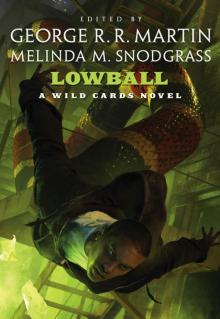 Lowball
Lowball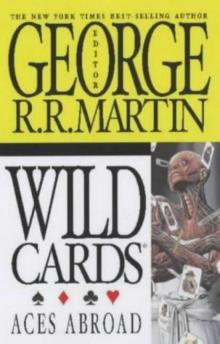 Aces Abroad wc-4
Aces Abroad wc-4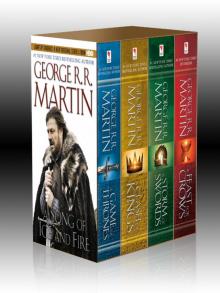 George R. R. Martin's a Game of Thrones 4-Book Bundle
George R. R. Martin's a Game of Thrones 4-Book Bundle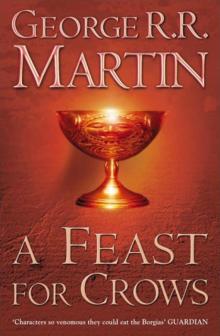 A Feast for Crows asoiaf-4
A Feast for Crows asoiaf-4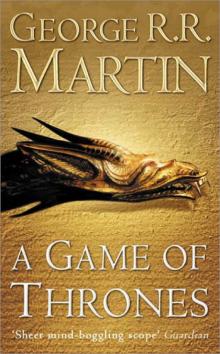 A Game of Thrones asoiaf-1
A Game of Thrones asoiaf-1 The Mystery Knight ttodae-3
The Mystery Knight ttodae-3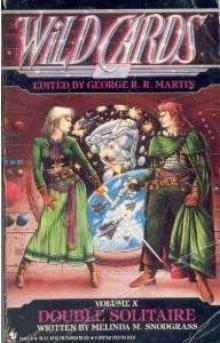 Double Solitaire w-10
Double Solitaire w-10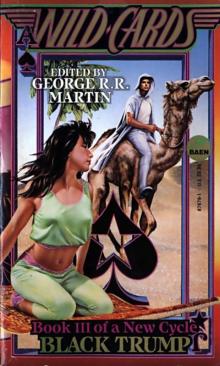 Wild Cards 15 - Black Trump
Wild Cards 15 - Black Trump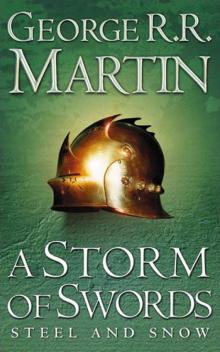 A Storm of Swords asoiaf-3
A Storm of Swords asoiaf-3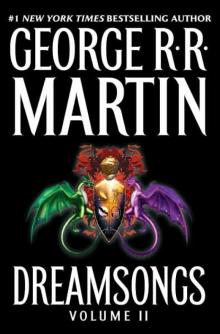 The Hedge Knight ttodae-1
The Hedge Knight ttodae-1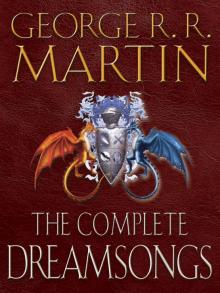 Dreamsongs 2-Book Bundle
Dreamsongs 2-Book Bundle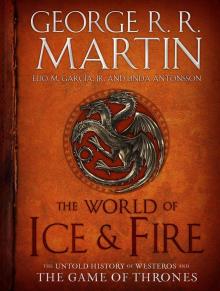 The World of Ice & Fire
The World of Ice & Fire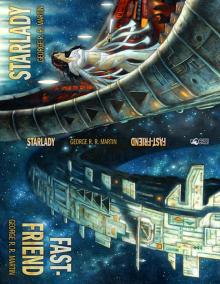 Starlady & Fast-Friend
Starlady & Fast-Friend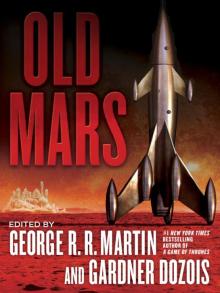 Old Mars
Old Mars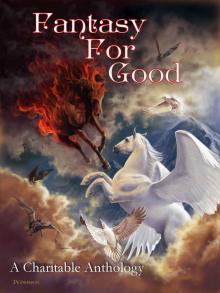 Fantasy For Good: A Charitable Anthology
Fantasy For Good: A Charitable Anthology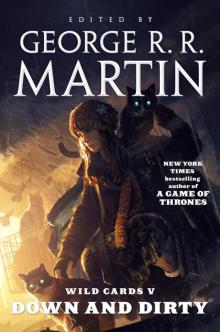 Wild Cards V
Wild Cards V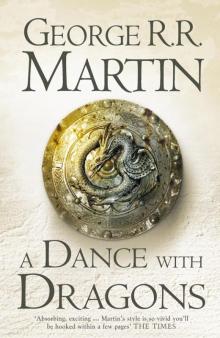 A Dance with Dragons asoiaf-5
A Dance with Dragons asoiaf-5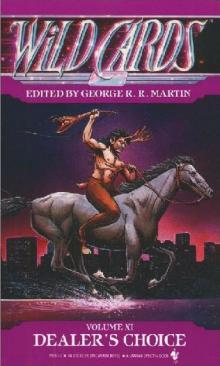 Dealer's Choice w-11
Dealer's Choice w-11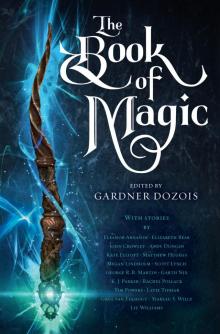 The Book of Magic
The Book of Magic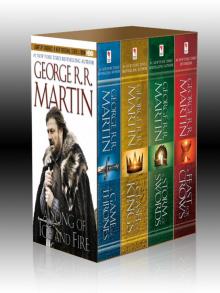 A Game of Thrones 4-Book Bundle
A Game of Thrones 4-Book Bundle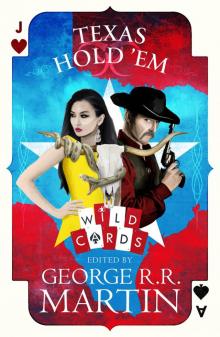 Texas Hold 'Em
Texas Hold 'Em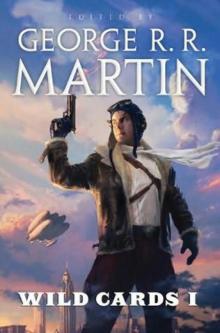 Wildcards wc-1
Wildcards wc-1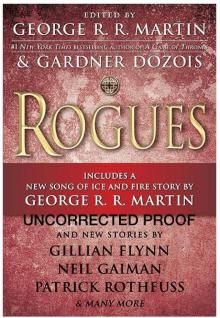 Rogues
Rogues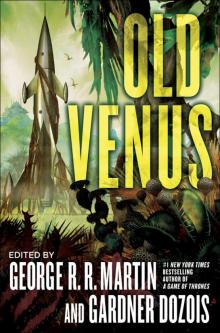 Old Venus
Old Venus